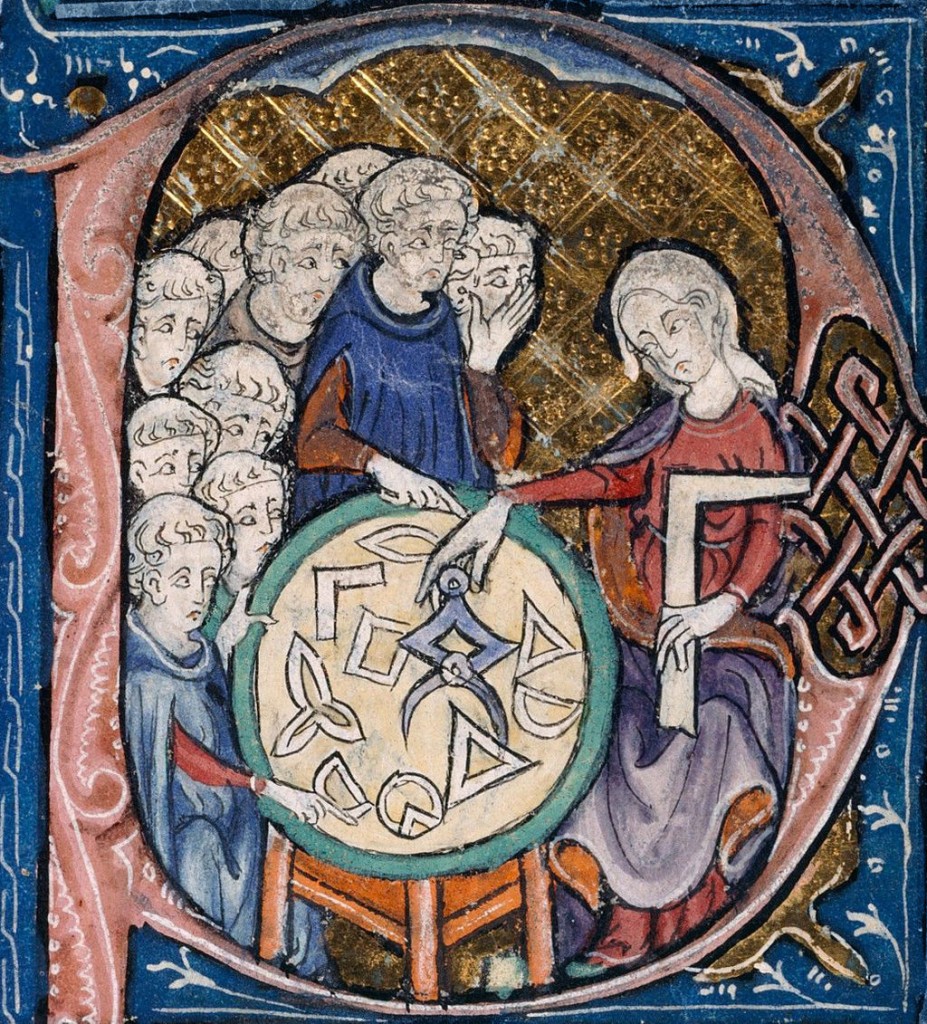This is “one” feminist perspective, because I understand that different women have had different bodily experiences, different possibilities within relationships – and that my Christian feminism is only one of many feminisms. However, I do want to emphasize that I am writing about my experience of the practice usually referred to as Natural Family Planning (NFP) not from a theological standpoint, but from my personal experience as a woman, a student of philosophy, and a proponent of equal rights. You may find, elsewhere, plenty of articles arguing for the moral or theological value of NFP, or why it is permitted to Catholics while artificial birth control (ABC) is not. What I would like to talk about is a woman’s bodily identity and personal self-ownership prior to decisions made about family planning. That is why I am speaking of Natural Fertility Management (NFM) as part of a my maturation in self-ownership and self-awareness. This is me speaking as I would if I were simply a humanist with an interest in virtue and responsibility.
The first thing I would like to point out is that the rhythm of female fertility is as much a part of bodily being in the world as digestion or breathing. To be biologically female is to encounter, as one crosses the threshold into physical maturity, the expectation of internal and external changes that will forever alter how one interacts with the world. I say “expectation” because the onset of puberty differs from one person to the next, and I do not want to neglect the experience of intersex persons. “Intersex” is a general term used for a variety of conditions in which a person is born with a reproductive or sexual anatomy that doesn’t seem to fit the typical definitions of female or male (definition from the Intersex Society of America). An individual with Androgen Insensitivity Syndrome (AIS), for instance, while genetically XY, can present as female from birth, but the onset of puberty brings changes different from those expected, and certainly no menstruation. In a society that emphasizes biological processes as rites of initiation and marks of identity, those who do not experience these processes are regularly marginalized, depersonalized, and even abused. That is why I want to emphasize that mine is “one” perspective.
Young women are differently educated about their fertility, and menstruation may come as a terrifying surprise, a tiresome obligation, or an exciting initiation. In patriarchal cultures in which women are valued primarily for breeding, the arrival of menstruation could be especially horrifying for a young girl who realizes she can now be placed on the marriage market. In George R.R. Martin’s A Song of Ice and Fire, there is a wonderful and heart-breaking scene in which the character Sansa wakes up to find that she has her period, and can now be married off to the loathsome prince who killed her father.
This is what happens when female fertility is considered not a woman’s possession, but a social commodity. And this is wrong. I have emphasized, repeatedly, in other posts, the fact that we are communal beings, that our self-sufficiency is largely illusory, that we have shared responsibilities. But here I would like to stress the opposite and complementary pole of community, which is self-ownership. Without self-ownership there can be no self-gift. Societies that deny self ownership through practices of slavery or forced marriage may seem to have unity, but this is a false unity, a forced and violent homogeneity.
My practice of fertility management, which I began long before marriage or sex or childbearing, is part of my self-possession. It is a practice of knowing.
Because my reproductive cycle influences how I relate to the world, knowing what it is doing is important. Everyone is familiar with PMS. It is the subject of constant misogynistic jokes deriding female rationality, explaining our bitchiness. It is ironic that while the supposed male helplessness in relation to his own unruly phallus is something women are supposed to respect and coddle (they just can’t help it, apparently, so it’s our duty not to provoke their manly lusts) – female helplessness in relation to our cycles is derided as proof of our incompetence.
And there is far more to a fertile cycle than PMS. The onset of a fertile phase is, for me, a period of heightened creativity and perception. I’ve been instructed that while men are initiatory, women are “receptive” (which is supposedly nicer than saying we’re passive) – but the fertile phase is a time of initiation, when I begin projects, write poems, come up with the plot twists that were eluding me. And physically, it is a time, for most of us, of giving forth rather than receiving: yes, if one has vaginal heterosexual intercourse, it is a time of receiving, but prior to this the body is producing, flowing with cervical mucus, messy. The body produces pheromones that can stimulate male desire (who’s doing the initiation now?). The fertile phase is a time in which the body is preparing to produce – to make a new human being, a unique individual. For the woman hoping to conceive, there is something both empowering and humbling about this bodily capacity. Pretending that it is not part of the cycle would be delusional.
This is also the time in which one is most desirous of sex. And this is where the primary difficulty of natural fertility management arises, within marriage, because if one is using it to avoid pregnancy, one has to abstain from sex during the time in which both partners most want it.
This is also why NFP / NFM is so radically different from any form of ABC. I am mystified by the fact that professional NFP promoters don’t emphasize this difference more, but instead speak vaguely about contraception as “placing barriers between spouses” or “not accepting the whole person.” The implication is that all the married couples who use ABC (including many protestants, Jews, ethical and virtuous people with functional marriages) are selfishly refusing the complete self-gift. This is something we should perhaps talk about, whether this description of couples who choose ABC is even psychologically realistic, and whether we are promoting NFP, as Catholics, from an angle that is off-kilter. Are all those contracepting married people out there really so depraved?
But that’s not my topic here. I have never used contraception, and would never have used it even if I weren’t Catholic, because all the forms available strike me as either unpleasant or unhealthy. I realize that the ease with which I have maintained this choice is the result of privilege: that for the most part, I’ve enjoyed relative reproductive health, and usually escaped forms of sexual violence which for many women are the norm. I would also like to note, by the way, that arguments against the detrimental nature of certain forms of ABC that other women choose are not arguments against the formal act of contraception per se, but are indeed legitimate warnings against using some of its material means, if possible. From a feminist perspective, I am dismayed at how casually contraceptive techniques have been offered to women (not men – the responsibility, apparently, is still ours) without sufficient ascertaining of health and safety. I doubt that the corporations making these means available have women’s best interests truly at heart.
In spite of all of the above, the amusing fact is that I have been accused of using contraception by those who think that NFP is acceptable only because it doesn’t “work,” and that since I have “only” three children I must be contracepting like mad. My response to this is that, if one has a normal fertility cycle (as I do, happily; I realize many do not), and moderate self-control, it can indeed work. And for some of us, our financial situation is such that it has to work. Not every woman has the economic privilege to stay home with her children, or not to freak out at the prospect of pregnancy – though I wish that this choice were available to everyone. The significance of economic hardship in relation to childbearing can not be discounted. It is estimated that during the Great Depression approximately 20% of pregnancies ended in abortion. And abortion was illegal. This is why, again, societies that wish to eradicate abortion must work to eradicate poverty.
I know many will argue that contraception itself is a preventative of abortion. But that’s not the topic I wish to address here. Feel free to argue about it in the comments section, by all means.
Others on the other side of the fence may be horrified that I have dared to use NFP/NFM to limit family size because that makes is just like contraception.
But this is ridiculous. NFP/NFM is utterly unlike contraception because it works only through the annoying and frustrating practice of abstaining from sex during fertile phases. NFP/NFM means acting in the world as a person who recognizes that sex is not something to which one has an immediate right, and that sexual self-control is a good. This is something which, I believe, needs to be cultivated in men from a young age, if we are going to effectively combat rape mentality. The contraceptive mentality often spoken of may be connected partially with the sort of baby-hating I addressed in an earlier piece, and for which I received bucketloads of hatred for daring to tell supposedly mature adults not to be assholes. But I think the mentality we need to look at especially is rape mentality: a man’s feeling of entitlement to sex, entitlement to punish women who deny him sex. And this leads to female fear of pregnancy forced violently.
The practice of sexual self-control and sexual awareness may seem puritanical, but it is actually central to the cultivation of eros. This does NOT mean that NFP/NFM is a cure-all for marital blahs, or that practicing it will guarantee wild thrilling and completely virtuous sex. It may, in fact, be a recipe for frustration. This is especially the case if a husband has been told that the basics of sexual morality are “wait til marriage, and then you can have it whenever you like.” This can even lead to abuse.
And even when both partners are alert and respectful, NFP can cause marital stress because, for instance, if you’re practicing it because of poverty, and the inability to support a larger family, it may be that you can’t afford any of the pleasures you see others enjoying – restaurants, vacations, gym membership, even days off together as a family. Sex is the one free pleasure left to you, and now during the time you most want it, you can’t have it. It’s easy to talk about how sacrifice builds character, or sex being more than pleasure, but we need also to recognize that the obligation to give things up can produce bitterness and resentment. Societies in which natural forms of fertility management are encouraged need to make this possible by working for economic justice, and systems of communal support.
When I speak of eros, then, I am not speaking of guaranteed great sex. I am speaking of a spiritual mindset which is capable of longing. In Symposium, Plato talks about how eros is, ultimately, a desire for the beautiful, which is also the good, and that all great deeds are motivated by this eros. When we are discontented with the status quo, and long to make the world more just, more beautiful, more kind – this is an attribute of eros. And eros is kept alive not by the practice of repeated instant gratification (which leads to satiety, disappointment, a dessicated eco-system, anger, abuse) – but by restraint. This is similar to the restraint we must use in our relation with the earth: my fertility, and its inner workings, are a kind of hidden eco-system which I must try to respect.
Cultivating eros in myself, then, is part of my self-possession as a woman, a thinker, an artist. This is something one can practice even if one is not planning to enter into marriage and childbearing. Of course, I understand that others may experience this differently, and that what for me has been a poetic adventure might, for others, be a difficult grappling with painful bodily irregularities, even mortal danger, or a coming to terms with absence, or with not fitting into the expectation, or part of a larger narrative of fear and exploitation. I also realize that perimenopause and menopause will introduce me to a new kind of bodily being. Will I write poems differently, when I no longer have fertile phases?
Maybe, during NFP Awareness Week, we should be open to hearing the different stories of women who have come into awareness of their own bodily identity in different ways, the better to create a society that respects the person, the physical, the biological, the ethical, and rejoices in all life.
image credit: https://en.wikipedia.org/wiki/Women_in_science#/media/File:Woman_teaching_geometry.jpg. Public Domain in the US (PD-US)













